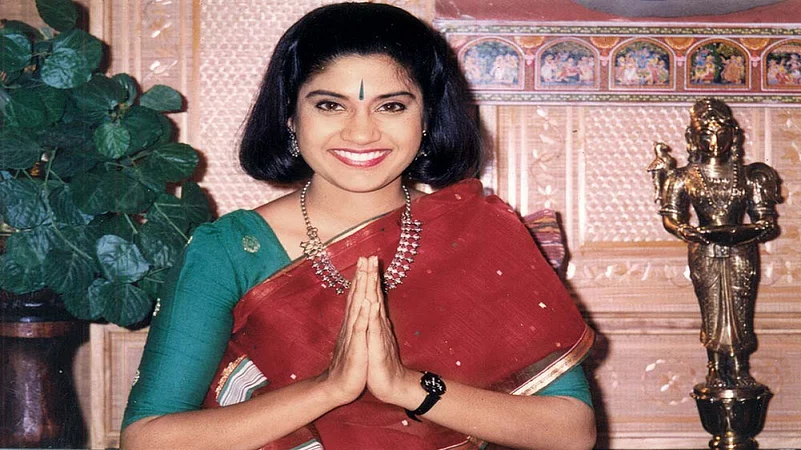Life has moved indoors in the Covid-shocked world, the television is among the few connects to the outside. But TV, as we know it, has changed. It’s not the same as it was when Surabhi was six years old and the UN declared November 21 as World Television Day. That was 1996. The audience has changed and the platforms have changed, as have the formats. Can we then compare today’s shows with a show that was successful more than 20 years ago? Surabhi of the 1990s and a 2020s show—it’s like comparing a tonga to a car! Surabhi’s uniqueness was its intent—to explore together; shared pride, no commercial motivation. The nation took part in its research, filming inputs, local hospitality and voluntary contributions. To reach Surabhi’s intent across languages and geographies is the new creative challenge. Cultural intent must be explored as an idea that transcends class and geography using modern technologies. Difficult? Yes. Impossible? No.
It would be fair to say the most surprised at the success of Surabhi were Renuka Shahane and I. When we began the programme, we had no precedent. Before Surabhi, programmes on culture were earnest or learned. But when we started, two things happened that we had not expected. For one, we had no idea that simply sitting on the floor and talking directly to the audience—an age-old Indian tradition—was revolutionary for a prime-time show. For the other, we had not reckoned the thousand megawatt power of Renuka’s smile! Almost overnight, the nation smiled back.
And then we ran into problems. An acerbic art critic of the time, Amita Malik, wrote in a leading national daily about Renuka’s smile: “Is she presenting culture or selling toothpaste?” Amitaji’s words had a profound effect on Renuka and she stopped smiling. We were just into the fourth week of our telecast and were at our wits end. Renuka must smile! Audience reactions poured in, lamenting the disappearance of Renuka’s good-natured grin. The smile reappeared in the eighth week (phew!) and continued through the decade. Amita Malik, god bless her soul, became our staunchest admirer, once writing in her review that Surabhi was a kaleidoscope of India.
Surabhi was an adventure I can never forget. To be adored and loved by so many people, and remembered after so many years, is a gratifying experience. Travelling to every part of India—from the cold deserts of Ladakh to the hot deserts of Rajasthan, from the backwaters of Kerala to remote islands of the Andamans (where we found Surabhi fans among tribals in the jungles), from rugged Madhya Pradesh to fertile valleys of the Northeast. Surabhi became my introduction to an idea of a diverse India that has stayed with me forever.
Surabhi introduced me to an aspect of India that I never knew existed. How else would I meet the legendary Gandhian, Baba Amte, and join his followers in giving a bath to a leopard in a river? Where would I have an opportunity of filming a wild Gir lion while it was being X-rayed in a Junagadh city clinic? When it opened an eye and glared at the camera, everybody in the room scooted, and returned after the vet put the animal back to sleep with a shot. Can you imagine a pelican, adopted by a village near Nalsarovar Bird Sanctuary, playing cricket with children?
If not for Surabhi, how else would I know that Indian democracy is more than 1,000 years old? Inscribed in the ruins of Uttaramerur in Tamil Nadu are strict rules for elections to a cooperative society. “If you wish to stand for the village election, you must be educated. Your age should not be less than 35 or more than 70 because these are the best years of experience and wisdom. You must have some property of your own. If you can’t look after your own property how will you look after that of the village? No contestant can stand for a post more than twice to give others a chance.” The rules of disqualification are radical too. “Alcoholism is a sin, as are immoral relations, murder, robbery and bribe taking. All the relatives of a disqualified candidate are prohibited from standing for elections for the next seven generations.” Those would be revolutionary for Indian elections. Won’t they? And while selecting a winning candidate, votes were kept in a pot in a public place and drawn by a child—a bit like picking winners of the Surabhi quiz a thousand years later. It is part of the wonder that is India and I am thankful to Surabhi for enabling me to experience and share it. You may catch the re-telecast of amazing Surabhi stories on DD Retro.



















